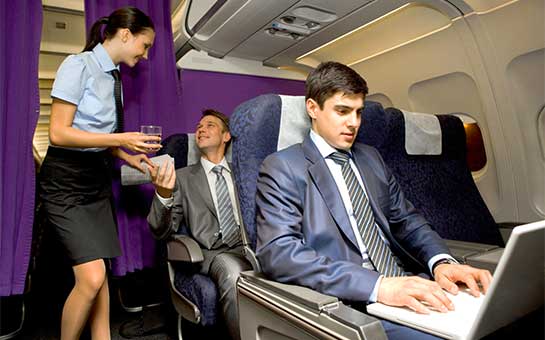When you buy airline tickets through frequent flyer miles, it is very important to understand what travel insurance can and cannot cover.
You can and should still purchase travel insurance if you book your flight tickets or other rewards through frequent flyer miles or rewards points; however, you cannot insure the retail value of the airline ticket, the price you would normally pay if paying out of pocket. From the insurance company's perspective, you can only insure the prepaid, non-refundable trip cost. If you paid $0 for a frequent flyer miles award ticket, such tickets have no insurable cost because the trip cost was $0.
Insurable Items
There are certain items that you can insure in such cases:
-
Non-refundable fees and taxes associated with redeeming miles and getting award tickets.
Even when booking a trip with frequent flyer miles, air tickets are not completely free. Airlines still charge you a mile redemption fee, and of course, you still have to pay the taxes on the ticket.
-
Prepaid, non-refundable baggage fee.
-
The cost of redepositing the miles or rebooking fees, also called an administrative fee. You must include non-refundable fees and taxes in your trip cost for this benefit.
Most frequent flyers have a redeposit fee to put the miles back into your account. Various airlines charge different amounts for redepositing the miles, but the usual charge ranges from $100 to $150.
This benefit is only available if you need to cancel your trip for covered reasons. If you cancel your trip using the Cancel for Any Reason, no travel insurance will reimburse you for the frequent flyer miles re-deposit fees.
-
Any non-refundable amount that you must pay to make up the difference between the ticket price and what the number of frequent flyer miles would get you. For example, you need 30,000 miles to book a specific itinerary, but you have only 25,000 miles accumulated. The airline asks you to pay an additional $260 for the difference, which you would be able to include in your trip cost.
-
You bought the airline ticket and paid the fare for economy class, but you upgraded to business or first class using your frequent flyer miles, or you got the economy class ticket using frequent flyer miles and paid extra money out of pocket to upgrade to business or first class. You can only insure the actual cost that you paid.
It would not cover fees to change your plans.
Of course, the exact benefits would vary by the specific insurance plan. In any case, you should keep all receipts or proof of payment to prove how much you paid out of pocket.
Of course, travel insurance can still provide other valuable coverages, such as emergency medical coverage, travel delay, baggage loss coverage, and baggage delay coverage; therefore, it is still recommended to purchase travel insurance. When asked for 'Initial Trip Deposit Date', please put the date you made your first travel arrangement, even if you didn't have to pay anything for it.
Trip Interruption
If you need to return home due to an emergency, and if you have purchased the airline ticket(s) with frequent flyer miles, the airline would usually not be able to book your new return flight(s) because it is most likely that there will not be any availability to return home using an award ticket. You will most likely end up buying a new ticket, and you will forfeit the miles. This is when trip interruption coverage becomes handy.
As the trip interruption coverage amount depends upon the trip cost insured, you may consider rounding up the per person trip cost to the top of the range, usually in increments of $500 or $1,000.
In any case, if you are getting your free airline tickets and having to just pay the taxes and fees, you are not going to get much trip interruption coverage.
If you are concerned that you might have to return home early for covered reasons, and you would need a higher trip interruption coverage, you should consider purchasing travel health insurance, which normally provides up to $5,000 in trip interruption coverage instead of buying trip cancellation insurance.
However, if you are just getting the airline tickets with frequent flyer miles, but you are still paying a significant amount out of pocket for a cruise, excursions and other travel arrangements, your trip cost could still be high enough that you might be able to use that in case you need trip interruption coverage.
Please keep in mind that while some plans provide trip interruption coverage up to 100% of the trip cost, many plans provide up to 150% of the trip cost.
For example, you paid $3,000 for the cruise and $120 for the fees and taxes. Therefore, your trip cost would be $3,120. You could be covered for trip interruption up to $3,120 or up to $4,680, depending upon the plan.
However, if you are only spending $120 on the trip cost because you are getting your airline ticket with frequent flyer miles, and you are staying with family during your travels, your total trip cost is $120. With low amounts, such as $120 or $180, you will not be able to buy an urgent airline ticket home if you need to abruptly return home.
Conclusion
If you booked you trip through frequent flyer miles or award points, you can still purchase trip cancellation insurance for limited benefits. Alternatively, you can consider purchasing travel health insurance.
Can't find answers to your questions?
Ask our specialists - Licensed and experienced insurance professionals in the U.S.
